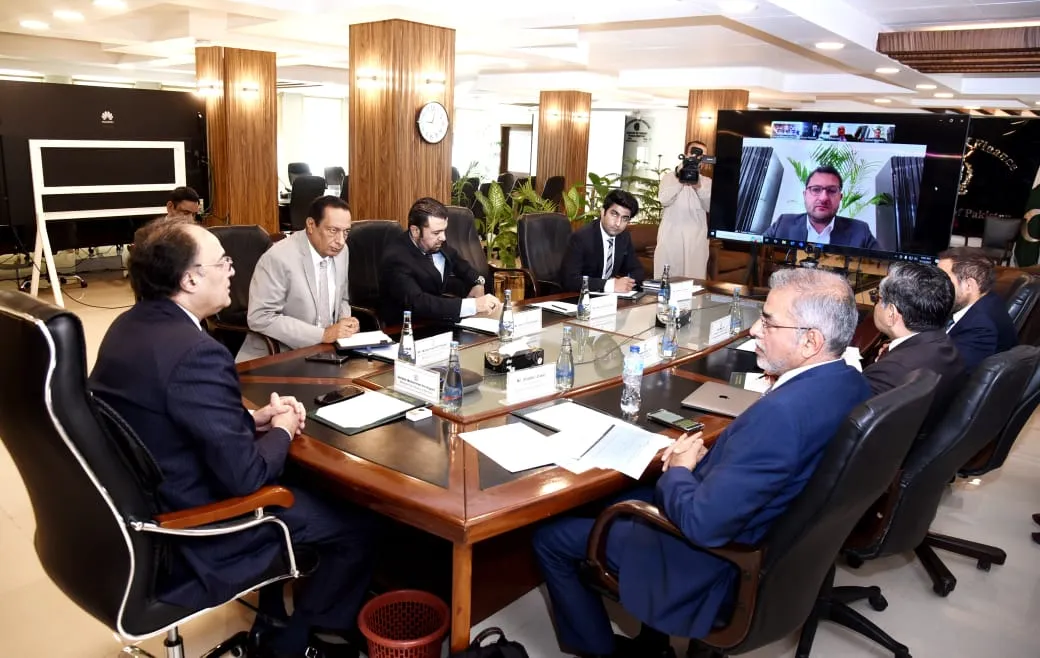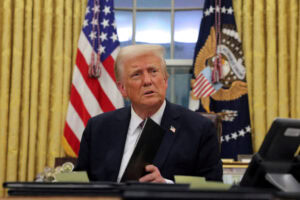Islamabad: Finance Minister further said that aligning fiscal priorities with the broader objective of sustainable to make upcoming federal budget as a strategic document with cutting the higher financing costs, elevated energy tariffs, and an overly complex tax regime—is essential for helping the local industry become competitive.
The government’s Tariff Rationalisation Program, aimed at removing anomalies and inconsistencies that hinder business operations.
Federal Minister for Finance and Revenue, Senator Muhammad Aurangzeb, held a meeting with a delegation of prominent exporters and business leaders, led by Mr. Shabbir Diwan, the former Chairman of the Pakistan Business Council (PBC).
This session was part of the government’s broader consultative initiative aimed at engaging key stakeholders from the industrial and commercial sectors.
During the discussion, the Finance Minister emphasized that pursuing export-led growth is not merely a preference but an absolute necessity for ensuring Pakistan’s long-term economic resilience and stability.
He noted that every segment of the national economy must contribute to this shift, highlighting that increased productivity and a more outward-oriented economic framework are vital if the country is to move beyond its recurrent cycles of economic booms and busts.
He warned that without such a shift, Pakistan risks returning to the International Monetary Fund (IMF) for what would be its 25th assistance program.
Key Takeaways
1. Export-Led Growth as a Strategic Imperative
- The Minister frames export-led growth not just as a desirable goal, but as the only viable path forward to avoid recurring economic crises.
- This echoes global development success stories—such as those in East Asia—where export competitiveness has driven sustained growth and industrialization.
2. End of Protectionism
- There is a clear call to dismantle the existing protectionist regime which has long shielded inefficient sectors.
- The move toward market-based competitiveness implies a major restructuring of tariffs, subsidies, and possibly state-owned enterprises.
3. Structural Reforms in Focus
- High energy costs, expensive financing, and a complex tax regime are identified as critical bottlenecks.
- These must be addressed to make local industries internationally competitive.
Read More: Finance Minister Advocates Inclusive Globalization at Boao Forum 2025
4. Budget as a Strategic Tool
- The upcoming federal budget will be treated as a strategic document, aligning spending and revenue with long-term export growth objectives.
5. Stakeholder Inclusion
- Meetings like this one, including prominent private sector voices, signal a more collaborative policy approach.
- Business leaders like Mr. Shabbir Diwan support greater policy consistency and transparency.
Implications for Businesses and Policymakers
- Industries should prepare for reduced protection and increased competition, both domestically and internationally.
- Export-oriented sectors (e.g., textiles, IT, agribusiness) may see greater support in terms of incentives, financing, and infrastructure.
- Tariff rationalization could reduce input costs for manufacturers, improving value chain efficiency.
- Tax and regulatory reform may be on the horizon to enhance ease of doing business.
Also Read: US Tariffs Hopefully to Reverse Soon; Finance Minister
Risks and Challenges
- Dismantling protectionism could hurt industries that are not ready to compete globally.
- Export markets must be actively diversified beyond traditional partners.
- External factors—like global demand and geopolitical risk—could affect short-term results.









